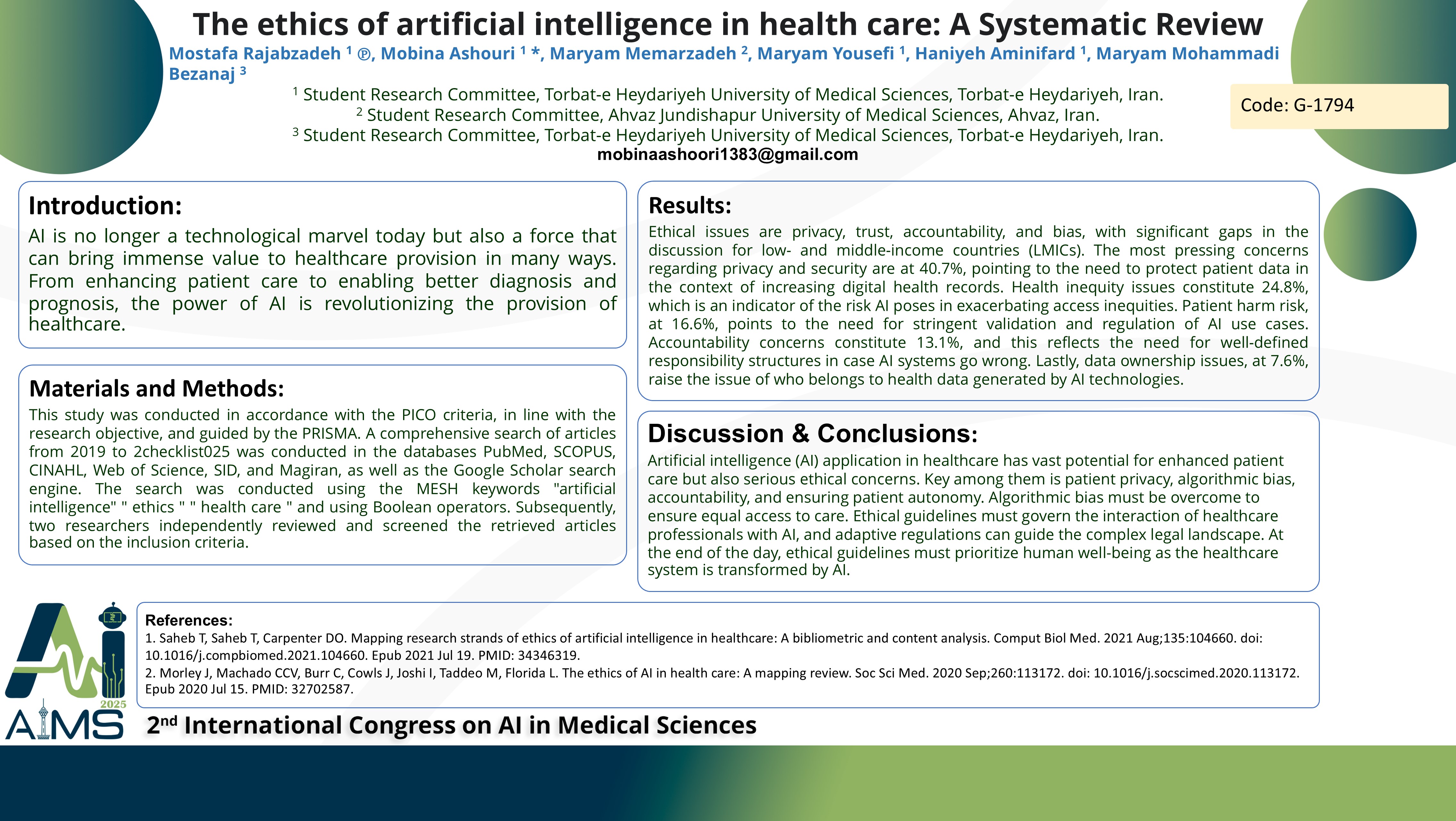The ethics of artificial intelligence in health care :A Systematic Review
Code: G-1794
Authors: Mostafa Rajabzadeh ℗, Mobina Ashouri *, Maryam Memarzadeh, Maryam Yousefi, Haniyeh Aminifard, Maryam Mohammadi Bezanaj
Schedule: Not Scheduled!
Tag: Health Policy, Law & Management in AI
Download: Download Poster
Abstract:
Abstract
Introduction: AI is no longer a technological marvel today but also a force that can bring immense value to healthcare provision in many ways. From enhancing patient care to enabling better diagnosis and prognosis, the power of AI is revolutionizing the provision of healthcare. Methods: This study was conducted in accordance with the PICO criteria, in line with the research objective, and guided by the PRISMA checklist. A comprehensive search of articles from 2019 to 2025 was conducted in the databases PubMed, SCOPUS, CINAHL, Web of Science, SID, and Magiran, as well as the Google Scholar search engine. The search was conducted using the MESH keywords "artificial intelligence" " ethics " " health care " and using Boolean operators. Subsequently, two researchers independently reviewed and screened the retrieved articles based on the inclusion criteria. Results: Ethical issues are privacy, trust, accountability, and bias, with significant gaps in the discussion for low- and middle-income countries (LMICs). The most pressing concerns regarding privacy and security are at 40.7%, pointing to the need to protect patient data in the context of increasing digital health records. Health inequity issues constitute 24.8%, which is an indicator of the risk AI poses in exacerbating access inequities. Patient harm risk, at 16.6%, points to the need for stringent validation and regulation of AI use cases. Accountability concerns constitute 13.1%, and this reflects the need for well-defined responsibility structures in case AI systems go wrong. Lastly, data ownership issues, at 7.6%, raise the issue of who belongs to health data generated by AI technologies. Conclusion: Artificial intelligence (AI) application in healthcare has vast potential for enhanced patient care but also serious ethical concerns. Key among them is patient privacy, algorithmic bias, accountability, and ensuring patient autonomy. Algorithmic bias must be overcome to ensure equal access to care. Ethical guidelines must govern the interaction of healthcare professionals with AI, and adaptive regulations can guide the complex legal landscape. At the end of the day, ethical guidelines must prioritize human well-being as the healthcare system is transformed by AI.
Keywords
Artificial Intelligence, Ethics
